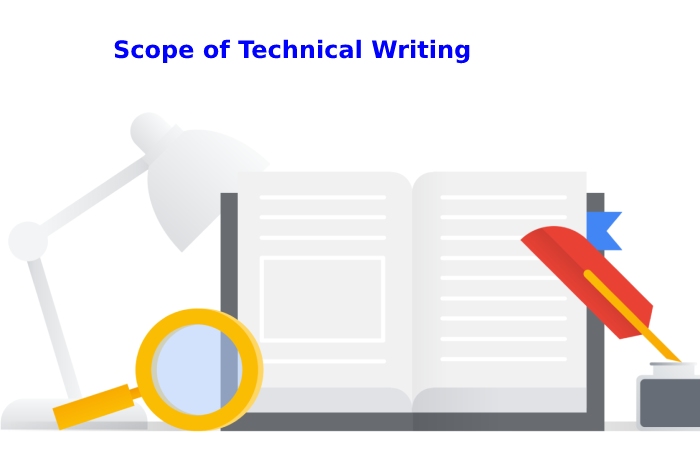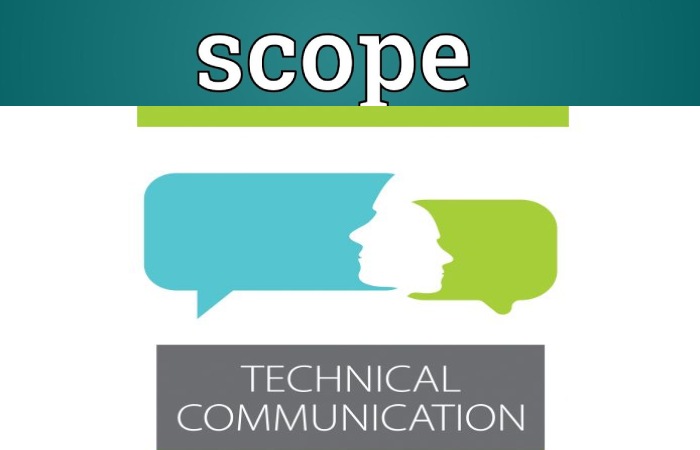Technical Communication Definition

Technical communication is an area that includes any form of the following communication. It can help users to achieve a defined goal or task. The main objective of technical communication is to help users who need specific information about the execution of tasks, use of products, operation of equipment, etc. It also helps companies in different ways:
- Be more productive and consumer-oriented.
- And also, employers correctly set goals, understand, and complete tasks successfully.
- Technical communication provides a basis for employers to come up with new ideas.
What Are The Objectives of Technical Communication?
It aims to make information clear and understandable to make business more productive and consumer goods more convenient. It helps advance our economy by ensuring sustainable research and development, protecting design and manufacturing, and also protecting consumers with accurate and informative materials.
The objective of technical communication is good technical writing will allow:
- Help employers understand and perform job tasks more successfully.
- And also provide background on which new ideas can build without repetition.
- Avoid problems with product development and manufacturing.
- Educate consumers on how to assemble, repair, or use a product.
Scope of Technical Writing

Technical writing comprises designing and creating technical documents such as user manuals, administration guides, installation manuals, quick reference guides, and training manuals. The subject matter of technical documents rotates around technologies, products, or processes.
One thing you should know is that a person isn’t required to be very creative to become a technical writer. Technical writing is about explaining, challenging, and comprehending concepts and procedures in straightforward, plain, and simply understandable language. But that doesn’t mean that job of a technical writer is easy, as lots of mind and time goes into it and a lot of research work is done. It starts as both art and science as it involves writing and a systematic method and scope of technical writing. So a person with technical background, as well as mass communication or an English text mark-off, maybe the latest participant in the field of technical writing.
Writing user manuals, training manuals, online help files, brochures, etc., is not new, but their classification under the word “Technical Writing” is relatively new in India. The scene for technical writing as a vocation is continuously growing, with paychecks at par with other standard career options like IT and Management in India.
What is the Purpose of Technical Communication?
The purpose is for a “transaction” between the sender and the reader. This transaction will allow the reader to attain a goal or task because of what the sender has written.
Most forms of address one of three primary purposes:
- to anticipate and answer questions (notify your readers);
- to enable people to perform a task or follow a procedure (instruct your readers);
- to influence people’s thinking.
Scope of Technical Communication

The scope of in an organization can vary by type of organization and industry, but in general, the following disciplines tend to fall within:
- Informational architecture
- Writing / technical writing
- Technical writing
- Technical illustration
- And also, User experience design
- Information/document design
- Instructional design
- Training
- Translation/localization
- Content publishing/distribution
- Technical Support / Knowledge Base Management
- And also, Technical Marketing
What is the difference between Technical Communication and Technical Writing?
Communication and writing are the same things. Technical communication is a new term that includes creating documentation and designing the user experience, instructional design, training programs, technical illustrations, etc. Both areas share the same goal of creating clear and concise content that helps users achieve specific goals.
It is an area that makes our lives easier and more productive. And also, if this area interests you as a professional, subscribe to the publication called Technical Writing is Easy, where technical writers share their experience and skills.
A Career in Technical Communication

A degree can be principal to employment in almost any industry, including healthcare, graphic design, manufacturing, software development, information technology, publishing, public relations, information design, online media, etc. Professionals with a background in it can pursue careers in manufacturing companies, software and hardware development companies, engineering companies, logistics organizations, environmental agencies, hospitals, medical companies, and insurance. Or any other employer that requires accurate technical documentation of your products and services.
With their writing and editing skills, technical communicators can take on various tasks, such as improving training programs to generate efficiencies in product development. Creating more effective information buildings for websites to enhance user satisfaction, writing technical illustrations to clarify assembly instructions for a product (e.g., furniture), and writing clear medical instructions.
It helps healthcare providers communicate better with patients or develop software instructions that allow users to get the most of the program’s value. While Technical Writer / Editor is a common career path, people with a Masters’s Degree in may also work in Project Management or pursue one of the careers listed below:
1. Technical Writer or Documentation Specialist
Technical writers and documentation specialists create educational and educational content for consumers and company employees. They can make and publish software instruction manuals, internal wiki pages and glossaries of business terminology, operating instructions for equipment, or articles in science and technology journals, to name a few. a few. These professionals also write certifications for companies that must record their software development, software updates, and other technological innovations.
2. Medical Writer
Medical writers specialize in creating documentation and educational materials on health, medications, and medical procedures. They may write articles, medical journal summaries, press releases for medical centers, or educational material for patients (such as medications or preoperative instructions). Depending on their target audience, the content they create could aim at helping healthcare providers better serve their patients. They are keeping the medical community up to date with the latest technological and scientific advances in their field or raising public awareness about these. developments in health and medicine.
3. Training Consultant
Training Consultants specialize in making training materials and other educational content for employees of companies and other organizations. They write documents to assist employees in the onboarding process and familiarize them with its internal systems and procedures. These specialists can create content for training brochures and presentations, instructions on using an internal content management system, or surveys measuring the effectiveness of a company’s training program.
Discipline and technology journalist: Science and technology journalists specialize in interpreting complex technically. And also, medical ideas into content that the general public can understand and apply. They write articles on new scientific and health studies, medical issues such as environmental factors affecting community health. And also, the latest technological advancements in everything from computer hardware and software to virtual reality.
4. Researcher

Graduates with a master’s degree in programs can also apply their communication skills. And also knowledge of technical concepts to research in various fields, including medicine, technology, natural sciences, and sociology. Researchers design and tool research studies to document their findings. And also interpret the results for multiple publications, including journal articles and content for the general public. Check this site: www.technologyify.com
Conclusion
It is a practice-oriented arena that emphasizes entire problem-solving tactics such as examination, research, design, and production to effectively communicate complex information. It covers various disciplines, including technical writing/editing, instructional design, training, translation, information architecture, user experience design, document design, etc.
Technical writers, document authorities, instructional designers, and other specialists use strategies to create a range of detailed information products.
Such as project documents, product catalogs, user manuals, training courses, how-to instructions, white papers, grant proposals, product announcement notes, knowledge-based articles, and reference guides. And also, other forms of content used to take technical information to internal and external audiences.
Also Read: A Comparison of Wise or N26 as FinTech Account
Related Searches
[technical communications]
[technical communication]
[what is technical communication]
[discuss about technical communication]
[example of technical communication are]
[technical communication skill]
[features of technical communication are]
[technical communication refers to]
[examples of technical communication are]
[nature of technical communication]
[features of technical communication]
[example of technical communication]
[which one is not the example of technical communication]
[technical communication skills]
[examples of technical communication]
[technical communication examples]
[basics of technical communication]
[definition of technical writing]
[outline the purpose of technical communication]
[stc meaning]
[technical writing definition]


